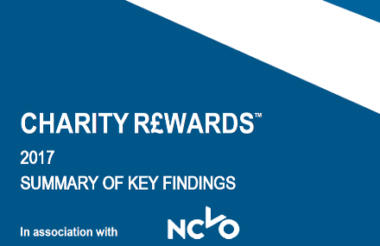Charity chief executives are paid 30 per cent less than the median average of their peers in other sectors, but junior charity workers earn on average more than entry level workers elsewhere, according to data published today.
The annual Charity Rewards Survey has been published by pay experts Croner in partnership with NCVO today and is based on a survey of 252 charities. Croner examined data from 10,287 job recordings, representing 41,017 charity workers.
Overall the average salary in the sector is £32,672, which is an increase of 3.5 per cent rise in median basic pay for voluntary sector workers compared to last year.
Croner’s benchmarking expert Clare Parkinson said: “As in previous surveys, pay in the charity sector is well below that of other sectors.”
Chief executive pay
Charity chief executives earn on average £82,423, which is 30 per cent less than the median for all sectors.
In London charity chief executives earn 50 per cent less than the average, with an average salary of £88,611.
Other senior directors earn on average £70,391, which is 24 per cent less than the all-sector average. Heads of function earn on average £55,500, which is 15 per cent less than the all-sector average.
Junior manager pay
For those at the beginning of their career charities pay above the average.
Trainee managers or supervisors, the most junior level in the report, earned on average £27,444, which is 22 per cent higher than the all sector median.
Junior managers in charities earned £32,586, which is 20 per cent more than the all sector average.
However the trainee and junior level managers in London earned fractionally less than the all-sector average.
Charity sector variations
Croner also looked at variations within the charity sector by comparing middle manager pay.
It found that international aid charities pay their middle managers more than other types of charity at £41,004 - around 5.6 per above the all-sector average.
Concerns about Brexit
NCVO said its members were concerned about how Brexit would impact on their ability to recruit staff.
Karl Wilding, director of public policy and volunteering at NCVO, said: “Looking ahead, NCVO’s members report concerns about the potential impact of Brexit in relation to recruiting staff.
“For some, including medical research charities, this is an issue relating to the highly skilled, such as research scientists. For others in areas such as social care, this relates to lower skilled roles.
“These pressures may indeed come to pass. Others argue that the tighter controls on migration may finally force employers to confront what many argue has been the UK’s poor record on skills and training.”
Related articles












